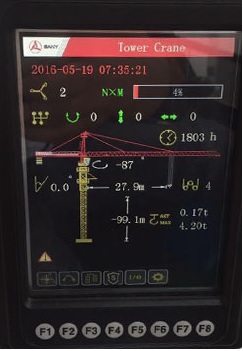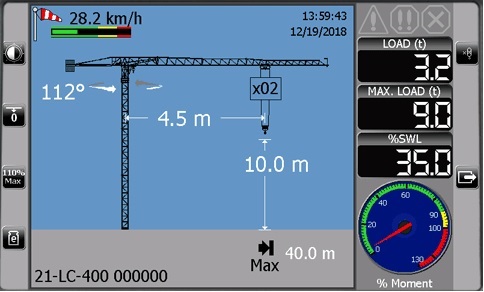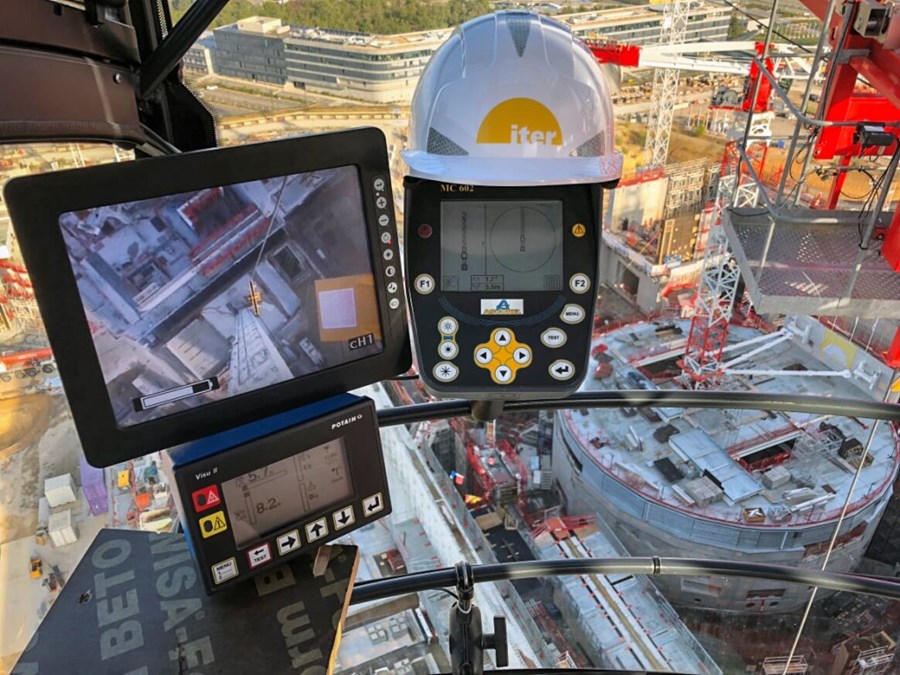




CT tower crane licence training course in Brisbane.
Our comprehensive training course for the Licence to operate a tower crane in Brisbane will equip you with the knowledge and practical skills needed to safely operate tower cranes on construction sites.
Our experienced trainers provide hands-on training in a supportive environment to ensure you feel confident and competent on the job.
Gain your licence and enhance your career prospects in the construction industry today.
This unit specifies the skills and knowledge required to operate a tower crane for licensing purposes, and covers the functions required to operate a tower crane safely and efficiently including:
- planning work,
- conducting routine checks,
- setting up crane,
- transferring loads,
- and shut down and secure crane.
We can also come to you.
Customized Proficiency: On-Site Training for Licence to Operate a Tower Crane at Your Premises and using your crane
Operating a Tower Crane demands specialized skills and knowledge to ensure efficient and safe lifting operations at construction sites and industrial settings. To cater to the specific training needs of businesses and organizations, our training organisation now offers the convenience of on-site training.
By delivering tailored training for Licence to Operate a Tower Crane at the client's premises, companies can equip their workforce with personalized expertise in a practical and efficient manner. Let's see the benefits of on-site training, the comprehensive scope it offers, and its relevance in promoting safety and compliance in tower crane operations.
1. The Advantages of On-Site Training
On-site training for Licence to Operate a Tower Crane presents several advantages that make it an attractive choice for businesses seeking to enhance their workforce's proficiency:
a. Customized Curriculum: On-site training allows training providers to tailor the program to the specific needs and requirements of the client's industry and construction site. This ensures that the training content directly addresses the organization's unique lifting challenges.
b. Reduced Downtime: Sending employees to off-site training can lead to significant downtime and reduced productivity. On-site training eliminates travel time, saving valuable time and resources for both the organization and its employees.
c. Practical Application: Training in a familiar work environment provides trainees with a practical perspective, enabling them to apply their newly acquired knowledge directly to real-world tower crane operations and scenarios.
d. Team Cohesion: Conducting training on-site fosters team building and enhances communication among employees. Trainees work together and apply their tower crane skills collaboratively, promoting better team dynamics.
2. Comprehensive On-Site Training Scope
On-site training for Licence to Operate a Tower Crane covers a wide range of crucial topics, ensuring participants are well-equipped to handle lifting operations with precision and safety:
a. Theoretical Foundations: Trainees gain a deep understanding of Tower Crane mechanics, control systems, load capacity calculations, and safety protocols to ensure secure lifting operations.
b. Hands-On Practical Experience: Practical training involves hands-on experience in operating Tower Cranes under the guidance of experienced instructors, allowing trainees to develop their skills in a controlled setting.
c. Risk Assessment and Safety: On-site training emphasizes the importance of risk assessment and hazard identification, ensuring participants can identify and mitigate potential dangers during lifting tasks.
d. Compliance with Regulations: Training covers the legal requirements and industry standards for Tower Crane operations, ensuring employees operate in full compliance with safety regulations.
3. Promoting Safety and Compliance
On-site training plays a pivotal role in promoting safety and compliance in tower crane operations. By delivering tailored training at the client's premises, participants can better identify and address site-specific risks, reducing the likelihood of accidents and ensuring adherence to safety protocols.
Conclusion
On-site training for Licence to Operate a Tower Crane offers businesses a convenient and personalized approach to equip their workforce with essential lifting skills. The advantages of on-site training, including customized content, reduced downtime, and practical application, make it an excellent choice for organizations seeking to promote safety and compliance in tower crane operations. By investing in comprehensive on-site training, companies demonstrate their commitment to the well-being of their employees, ensuring they become more competent and efficient in handling lifting tasks. For businesses striving for optimized tower crane operations, on-site training for Licence to Operate a Tower Crane is a valuable solution that ensures a skilled and compliant workforce.
Eligibility:
18 years of age or older,
Able to hold driver's licence,
Sufficient English language skills.
On-the-job supervised logbook training for tower crane operations is a highly effective and practical approach to skill development.
This method of training provides hands-on experience under the guidance of experienced tower crane operators, ensuring trainees gain real-world expertise in safe operations of a tower crane.
Let's explore the benefits and significance of on-the-job supervised logbook training, how it fosters practical learning, and why it has become a preferred choice for skill enhancement in tower crane operations.
1. What is On-the-Job Supervised Logbook Training?
On-the-job supervised logbook training is a structured training program that allows individuals to learn and hone their skills while working in real work environments.
The trainees maintain a logbook, documenting their practical experiences and progress, under the guidance and supervision of skilled and fully licensed tower crane operators.
2. The Advantages of On-the-Job Supervised Logbook Training
a. Practical Learning: One of the key advantages of this training approach is the emphasis on practical application. Trainees learn by actively participating in real tasks and challenges, preparing them for real-world scenarios.
b. Personalized Guidance: With experienced tower crane operators overseeing the training, trainees receive personalized feedback and guidance tailored to their individual learning needs, boosting their learning curve.
c. Industry Relevance: On-the-job supervised logbook training aligns with industry requirements and standards, ensuring trainees are well-equipped with up-to-date skills and knowledge.
d. Enhanced Retention: Hands-on learning enhances information retention, allowing trainees to recall and apply their knowledge more effectively in the future.
3. The Importance of Mentorship
Effective mentorship is a cornerstone of on-the-job supervised logbook training. Skilled and experienced tower crane operators offer invaluable insights, imparting practical wisdom and industry best practices to trainees.
This mentor-trainee relationship fosters professional growth and builds confidence in the trainees' abilities.
4. Documenting Progress: The Logbook
The logbook plays a crucial role in on-the-job supervised training. It serves as a record of the trainee's practical experiences, documenting tasks completed, skills acquired, and mentor feedback.
This logbook becomes a tangible representation of the trainee's journey and serves as a valuable reference for future skills-gap training and assessments.
Conclusion
On-the-job supervised logbook training is a highly relevant and efficient method of skill development. Its emphasis on practical learning, personalized guidance, and industry relevance makes it a preferred choice in various sectors.
The mentorship aspect is pivotal, enabling trainees to learn from experienced professionals and thrive in their chosen professions.
With comprehensive logbook documentation, trainees can track their progress and showcase their acquired skills to current or potential employers. As industries continue to seek proficient and practical professionals, on-the-job supervised logbook training stands as an indispensable pathway to success.
Call for a total course cost and any optional funding available. We can also accept Zip payments as a 'Study now, pay later' option.